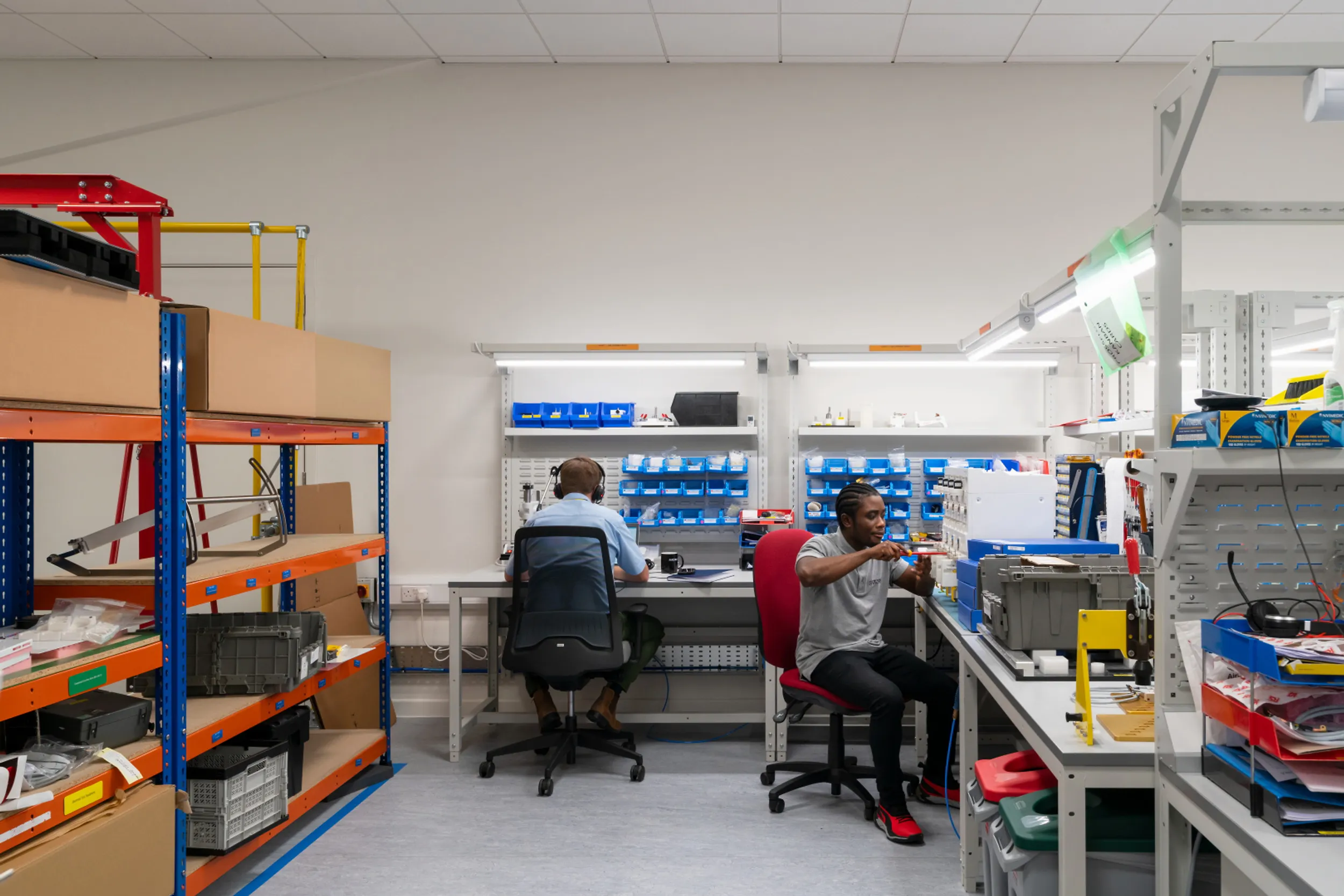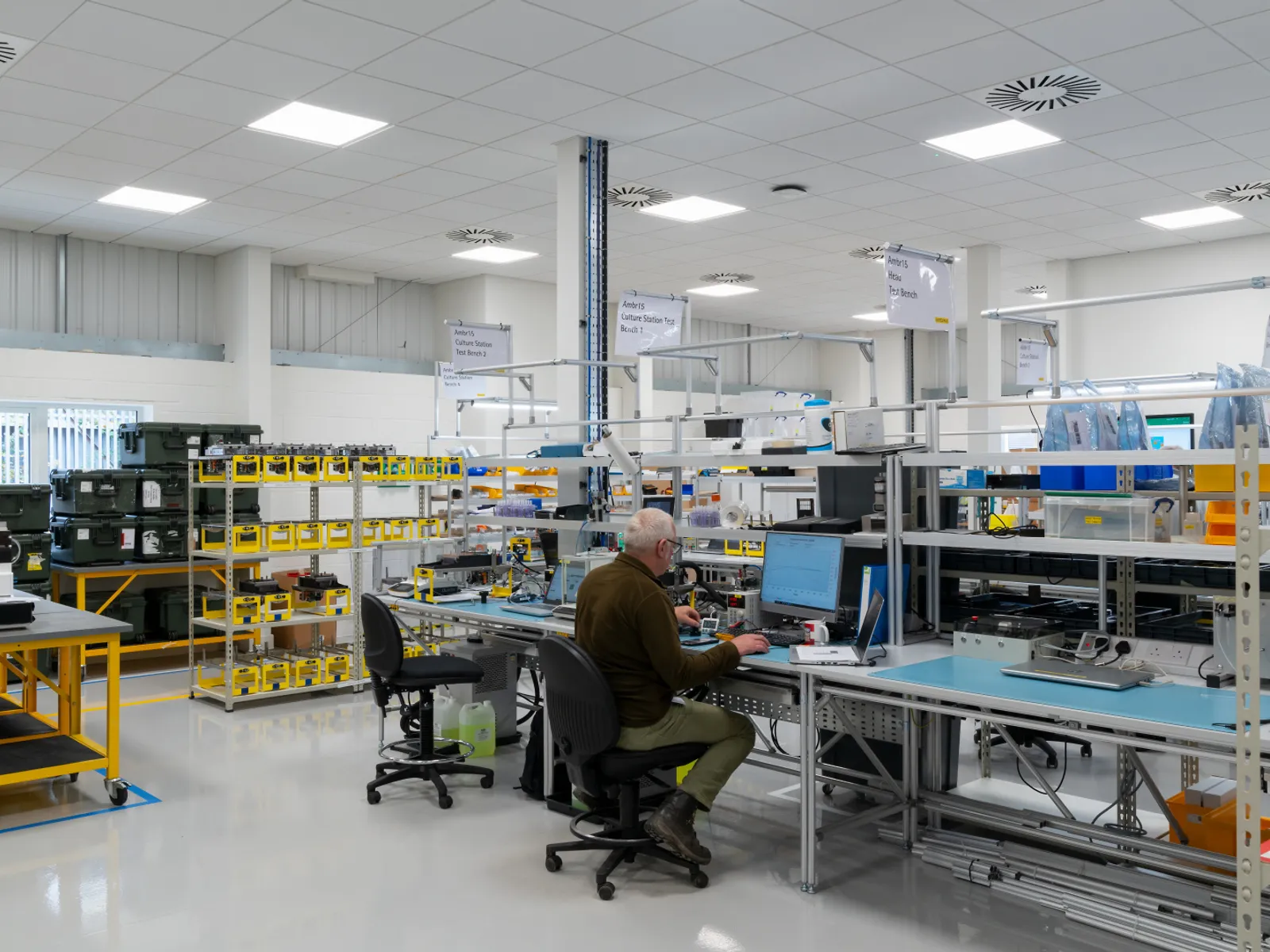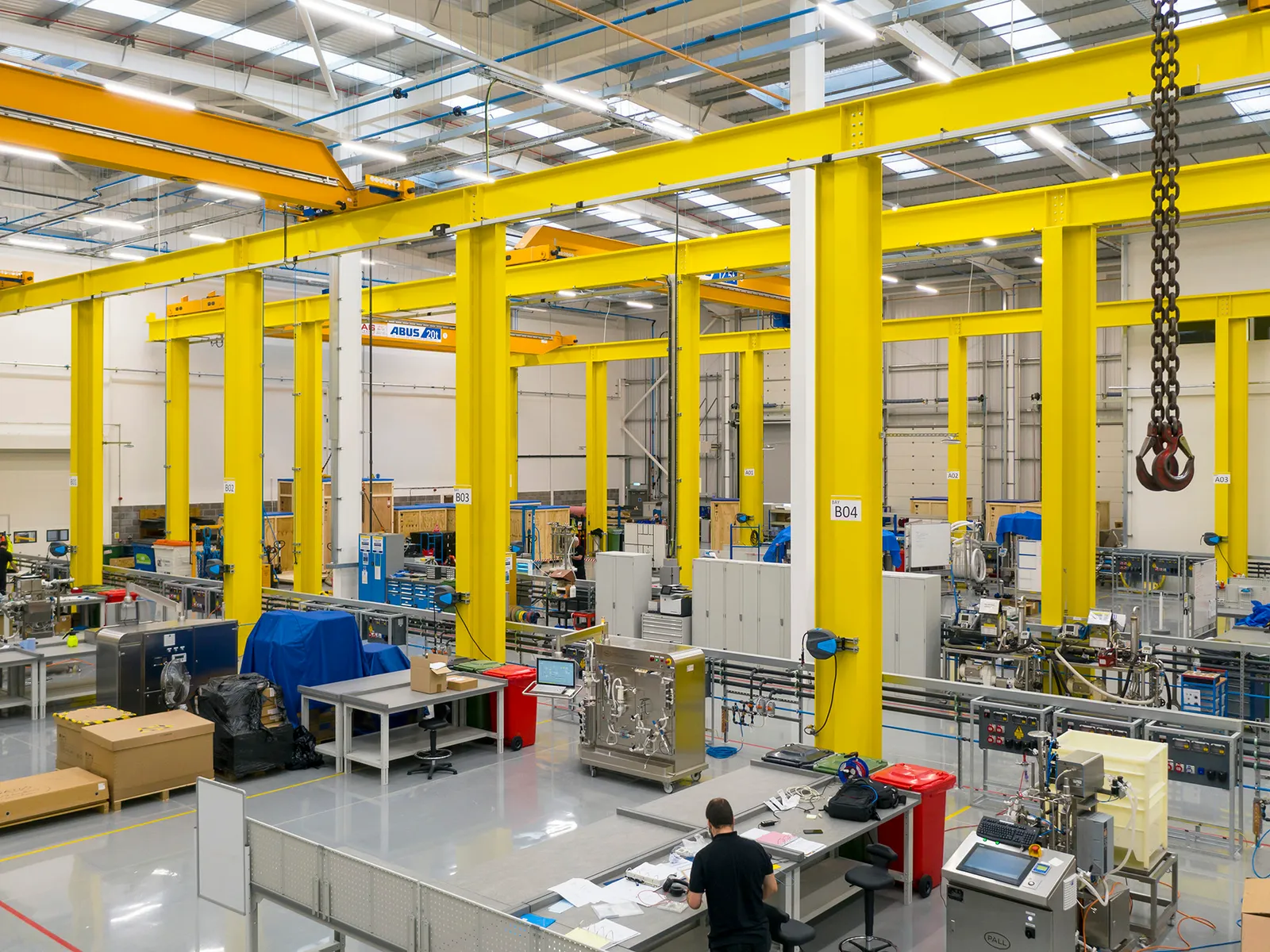Advanced Dry Lab Environments

We specialise in creating advanced Dry Laboratory environments for computation, physics, and engineering. With our extensive experience and expertise, we excel in meeting the unique design needs of Dry Labs.


Dry Lab Design for Innovation and Precision
Dry labs, unlike their wet lab counterparts, focus on computational activities, physics research, and engineering experimentation. In these environments, the emphasis shifts from chemical resistance to other critical factors. Here's where our proficiency comes into play.
Our commitment to excellence means equipping your Dry Lab with state-of-the-art computational equipment. From high-performance computing clusters to specialised software tools, we ensure that your lab is fully equipped to handle complex modelling, simulation, and data-driven research projects.


Engineering Excellence for Seamless Operations
Dry labs are often filled with high-performance equipment generating significant heat. We understand that efficient emergency power, proper air supply, humidity control, and exhaust systems are paramount to the continuous and effective operation of these spaces. Our design solutions are tailored to maintain the optimal environment for your scientific endeavours in dry laboratories.
Whether you're in need of a new Dry Lab, a hackspace for innovation, a robotics lab, or an instrument demonstration showroom, we have the knowledge and experience to deliver bespoke solutions. Our track record spans diverse fields, including quantum computing, automation, medical devices, and bioengineering. No matter the complexity of your project, we have the expertise to bring your vision to life.
Related Case Studies


Driving Scientific Discovery
In the era of data-driven science, we appreciate the importance of robust data management and analysis infrastructure. Our dry laboratory solutions incorporate data storage, retrieval, and analysis capabilities, ensuring that your lab is equipped to extract meaningful insights from vast datasets.
At Area, we understand the intricacies of Dry Lab design, and our commitment to excellence ensures that your laboratory environment is not just functional but optimised for peak performance. Experience the difference with Area and unlock the potential of your Dry Lab.
Dry Laboratory FAQs
What is a dry laboratory?
A dry laboratory, also known as a dry lab, is a space designed for research and experimentation that does not require the use of large amounts of water or chemicals. These labs typically focus on computational analysis, data modelling, electronics, physics, and other disciplines that rely more on computers and dry materials rather than wet chemicals and solutions.
What considerations are important in the design and fit out of a dry lab?
When designing and fitting out a dry lab, it's essential to consider factors such as the specific research activities, the need for data connectivity, electrical requirements, workspace ergonomics, storage solutions for equipment, and environmental controls to ensure a stable and safe working environment.
How long does it take to complete a dry lab fit out or refurbishment?
The time required to complete a dry lab fit-out or refurbishment depends on the project's scope and complexity. A typical project can take anywhere from a few weeks to several months, depending on factors such as space size, customisation needs, and the intricacy of the installations required.














